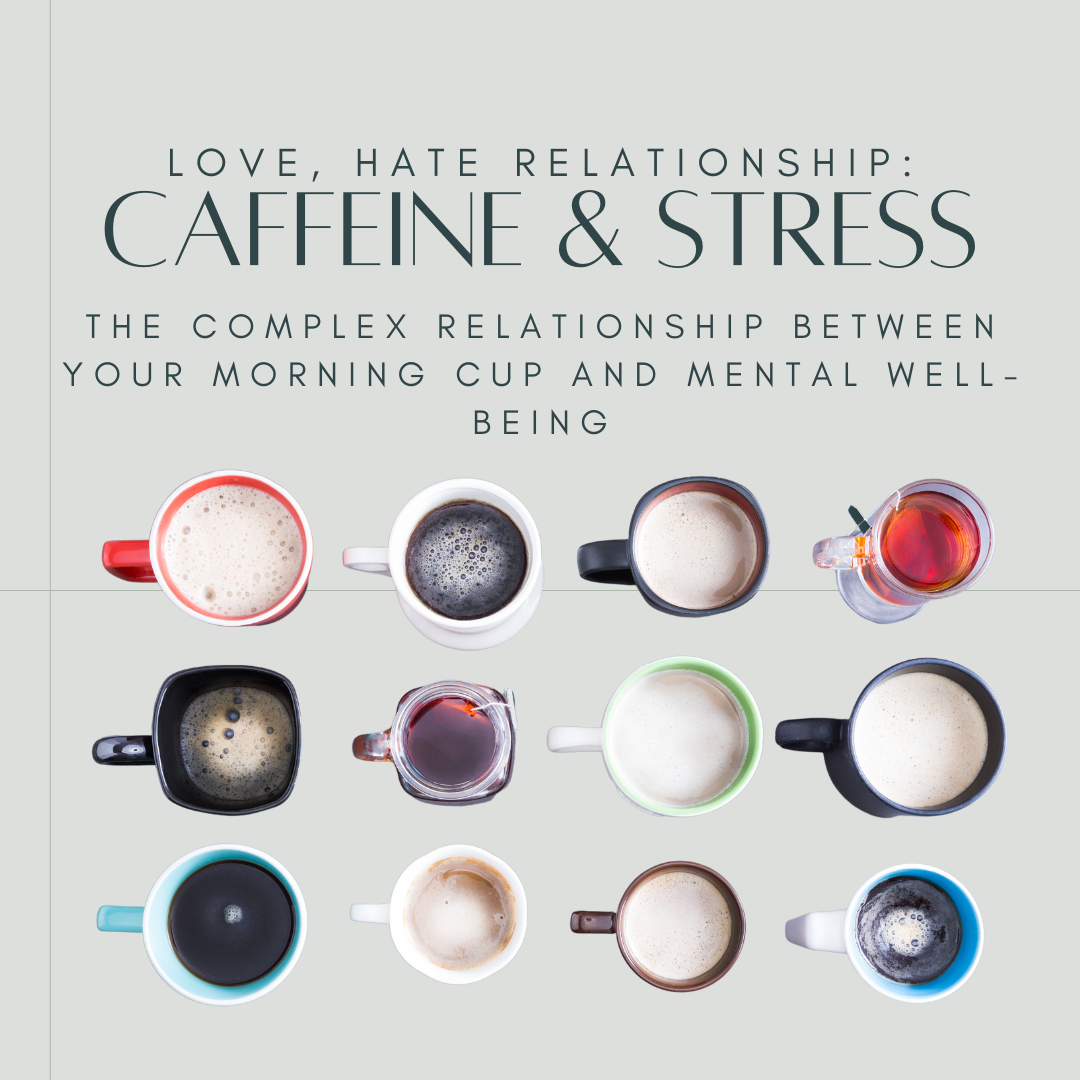
Caffeine and Stress: The Complex Relationship Between Your Morning Cup and Mental Well-being
Share
April is Stress Awareness Month.
We want you to love and drink as much as your heart's delight, but we want you to stay healthy as well. With that, a slightly more serious piece on caffeine.
For many, caffeine is a beloved morning ritual that helps kick-start the day. Whether it's in the form of a cup of coffee or tea, caffeine has become an essential component of many people's daily routines. However, as much as we depend on caffeine for its energizing effects, its relationship with stress and mental well-being is complex and intricate. In this article, we'll explore how caffeine can affect our stress levels and overall mental health and provide insight into making informed choices about our daily consumption habits.
The Physiology of Stress and Caffeine: How Your Body Responds
Stress and caffeine are two common facts of daily life. When these two factors collide, the physiological reaction within our bodies can be complex. In response to stressors, our body activates the "fight or flight" response through activation of the sympathetic nervous system (SNS), which triggers an increase in heart rate, blood pressure and respiratory rate amongst other things. Caffeine consumption can also activate this SNS response by stimulating the release of catecholamines like adrenaline and noradrenaline - both critical players in activating that "fight or flight" mode. While acute stress responses may provide short-term benefits such as increased focus and motivation, prolonged activation of the SNS can lead to negative mental health outcomes such as anxiety disorders, depression and sleep disturbances. Similarly, excessive caffeine consumption may negatively impact mood stability with similar side effects.
Fortunately for coffee drinkers everywhere there's a sweet spot where they get just enough stimulation but avoid adverse effects on their well-being! Regular moderate caloric intake from healthy foods balanced with moderate amounts of caffeinated beverages may bring more benefit than harm, especially when aiming at making an overall healthy lifestyle change. It is important we consciously track our intake levels so all those around us stay sane too!
The Benefits and Drawbacks of Caffeine for Stress Management
Caffeine has long been known for its stimulating effects on the body and mind, making it a popular choice as a stress buster. One of the primary benefits of caffeine is that it can help alleviate fatigue and tiredness which are often common symptoms associated with high-stress levels. By increasing alertness and concentration, caffeine can temporarily improve cognitive function, allowing you to better manage stressful situations. However, while caffeine may offer some short-term benefits when it comes to managing stress, there are also several drawbacks to consider. Firstly, excessive consumption of caffeine can negatively impact the quality of sleep which is crucial for reducing stress levels. Additionally, consuming too much caffeine over time can lead to increased anxiety levels and even contribute to the development of mental health disorders such as depression.
Given these pros and cons, it's important to be mindful of your daily intake of caffeine if you're looking at using it as a tool for stress management. It's recommended that individuals aim for no more than 400 milligrams per day (roughly four cups) in order not to encounter any negative consequences from having too much coffee or other caffeinated drinks. Ultimately everyone is unique in how they respond metabolically; therefore understanding one’s own body will determine what amounts work best for them without causing unwanted side effects like increased anxiety or disrupted sleep patterns etcetera.”
Finding a Healthy Balance: Tips for Managing Caffeine Intake and Stress Levels
Finding a healthy balance between managing caffeine intake and stress levels is crucial for maintaining good mental health. Although it's common to use caffeine as a stimulant, excessive consumption can lead to increased anxiety and worsened stress levels. People who are already prone to anxiety or have high-stress jobs should be especially careful about how much caffeine they consume each day.
The best way to manage caffeine intake is through moderation. It's important not to exceed the recommended daily limit of 400mg of caffeine, which equates roughly to 4 cups of coffee or tea. Additionally, you can switch out your typical beverage for decaffeinated options or herbal teas that don't contain any stimulants at all. Making changes gradually also helps reduce withdrawal symptoms if there are any noticeable effects when cutting back on your daily dose.
Stress management techniques such as yoga, meditation or breathing exercises can help people deal with stressful situations without relying on energy boosters like coffee or tea. When it comes down to finding the right balance between caffeination and our mental health needs patience but by being more mindful of our own routines we might find ourselves feeling alert however in low-stress environments regardless of whether we choose decaf over regular coffees!
In case you're wondering, both Kenny and Phil use chai as their go-to drink when they've reached their coffee limit.
